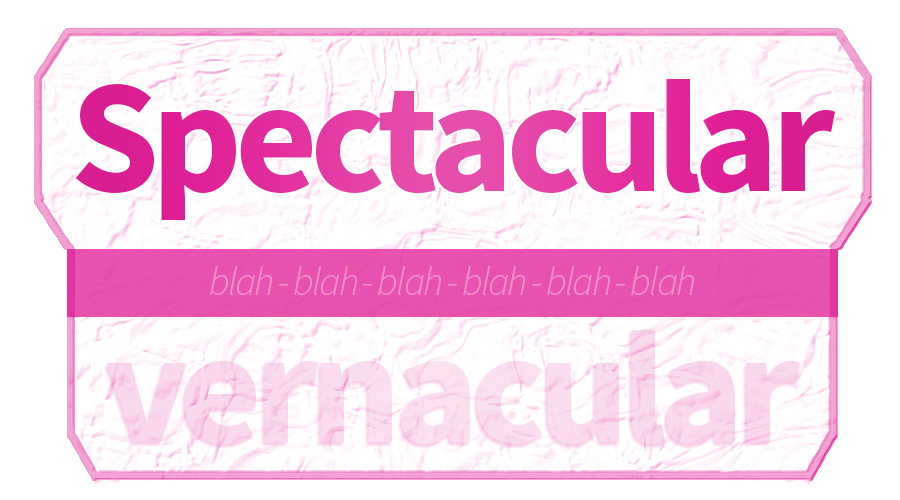AILAGAO 067 | The x No Article 125AH
“A linguagem é a janela para o mundo.” | “Language is the window to the world.”
Ao estudar a gramática do inglês, nos deparamos com um aspecto que pode parecer simples, mas que carrega consigo uma profunda riqueza de significados: o uso de substantivos plurais em um sentido geral.
Neste quiz, exploramos como os substantivos plurais, quando usados sem artigo, expressam ideias de universalidade e abrangência, permitindo que nos conectemos de forma mais significativa com o nosso interlocutor.
A língua é uma construção viva, e entender suas nuances é fundamental para a comunicação eficaz, por isso compreender essas regras não apenas aprimora nossa escrita e fala, mas também nos aproxima da cultura anglófona de maneira mais autêntica.
Não quer ler? Então ouça o podcast relacionado:
Academia BSB: it’s not only about the language, it’s all about communication!
| 00:30 | apresentação |
| 02:45 | introdução |
| 07:48 | explicação |
| 11:12 | resumo |
1. Casos que não requerem artigo: substantivos plurais em sentido geral
Substantivos plurais expressos em um sentido geral não necessitam de artigo. Essa regra é fundamental para a compreensão da estrutura das sentenças em inglês, uma vez que ajuda a identificar a generalização de uma ideia.
1.1 Sintagmas
- Restaurants
- Dogs
- Books
1.2 Construções
| Exemplo Correto | Exemplo Incorreto |
| Restaurants are usually crowded on a Saturday night. | |
| Dogs are great companions. | |
| Books are a source of knowledge. | |
| Teachers often recommend reading more books. |
Adaptações
Na adaptação da frase para um contexto mais específico, pode-se incluir elementos que destaquem a variedade de restaurantes disponíveis na cidade, por exemplo: “Restaurants in the city offer a variety of cuisines.”
1.3 Aplicações Práticas
| Literatura | “Men are often ruled by passions.” – Orgulho e Preconceito, de Jane Austen. |
| Livros | “Cities change over time, but people remain.” – HOSSEINI, Khaled. A Thousand Splendid Suns. New York: Riverhead Books, 2007. |
| Notícias | “Doctors across the country are rallying for better healthcare policies.” – The New York Times. Nova Iorque, 10 abr. 2023. . |
| Música | “Girls just wanna have fun.” – LAUPER, Cyndi. Girls Just Want to Have Fun. Epic Records, 1983. |
2. Casos que não requerem artigo: nomes próprios
Os nomes próprios, mesmo quando precedidos por um título, não exigem artigo. Essa regra é essencial, pois diferencia nomes específicos de substantivos comuns e evita confusões em contextos variados.
2.1 Sintagmas
- Mark
- Mr. Champney
- Doctor Jones
2.2 Construções
| Exemplo Correto | Exemplo Incorreto |
| Mark is attending the meeting today. | |
| Mr. Champney will join us for dinner. | |
| Doctor Jones is a renowned surgeon. | |
| Aunt Mary brings delicious cookies to family gatherings. |
Adaptações
Em adaptações, pode-se mencionar mais sobre o contexto do nome próprio, como “Mr. Champney, a local expert, will join us for dinner.”
2.3 Aplicações Práticas
| Literatura | “Mr. Darcy is here.” – AUSTEN, Jane. Orgulho e Preconceito. 3. ed. São Paulo: Editora XYZ, 1813. |
| Livros | “Professor Hawking inspired many students.” – HAWKING, Stephen. Brief Answers to the Big Questions. London: Bantam Press, 2018. |
| Notícias | “President Biden addresses the nation on new policies.” – BBC News. Londres, 15 nov. 2023. . |
| Música | “Johnny was a good man.” – GREEN DAY. Good Riddance (Time of Your Life). Reprise Records, 1997. |
3. Casos que não requerem artigo: nomes de cidades, países e continentes
Nomes de cidades, países (com nomes de uma única palavra) e continentes não requerem artigo. Essa característica é crucial para a correta identificação geográfica e cultural em frases.
3.1 Sintagmas
- Berlin
- Germany
- Europe
3.2 Construções
| Exemplo Correto | Exemplo Incorreto |
| Berlin is the capital of Germany. | |
| Germany has a rich history. | |
| Europe is known for its diverse cultures. | |
| France and Spain are popular tourist destinations. |
Adaptações
A frase pode ser adaptada para incluir detalhes: “Germany, known for its castles, has a rich history.”
4.3 Aplicações Práticas
| Literatura | “London was foggy that morning.” – A Study in Scarlet, de Arthur Conan Doyle. |
| Livros | “Paris is magical at night.” – MORGENSTERN, Erin. The Night Circus. New York: Doubleday, 2011. |
| Notícias | “California experiences record heat waves.” – The Guardian. Londres, 22 ago. 2023. . |
| Música | “Leaving Las Vegas.” – CROW, Sheryl. Leaving Las Vegas. A&M Records, 1996. |
4. Casos que não requerem artigo: ilhas, montanhas e lagos
Nomes de ilhas, montanhas e lagos não requerem artigo. Essa regra é importante para descrever lugares específicos de forma clara e precisa.
4.1 Sintagmas
- Sardinia
- Mount McKinley
- Lake Ladoga
4.2 Construções
| Exemplo Correto | Exemplo Incorreto |
| Sardinia is a beautiful island. | |
| Mount McKinley is the highest peak in North America. | |
| Lake Ladoga is located in Russia. | |
| Mount Everest attracts many climbers each year. |
Adaptações
Para uma melhor compreensão, a frase pode ser expandida: “Sardinia, with its stunning beaches, is a beautiful island.”
5.3 Aplicações Práticas
| Literatura | “The Alps stretched endlessly before them.” – Frankenstein, de Mary Shelley. |
| Livros | “Mount Everest draws climbers every year.” – KRAKAUER, Jon. Into Thin Air. New York: Villard Books, 1997. |
| Notícias | “Lake Michigan freezes over in historic winter.” – Chicago Tribune. Chicago, 15 fev. 2023. . |
| Música | “Down by the River.” – YOUNG, Neil. Down by the River. Reprise Records, 1970. |
5. Casos que não requerem artigo: nomes de línguas e áreas de estudo
Nomes de línguas, áreas de estudo e esportes não exigem artigo. Essa característica é fundamental para a educação e a comunicação sobre diferentes disciplinas.
5.1 Sintagmas
- Spanish
- Maths
- Tennis
5.2 Construções
| Exemplo Correto | Exemplo Incorreto |
| Spanish is spoken in many countries. | |
| Maths is essential for understanding science. | |
| Tennis is a popular sport worldwide. | |
| Soccer brings communities together during tournaments. |
Adaptações
A frase pode ser adaptada para incluir a importância do aprendizado: “Spanish is spoken in many countries and is essential for international communication.”
6.3 Aplicações Práticas
| Literatura | “He spoke French fluently.” – O Grande Gatsby, de F. Scott Fitzgerald. |
| Livros | “Math can be challenging.” – ABBOTT, Edwin A. Flatland: A Romance of Many Dimensions. London: Seeley, Jackson, and Halliday, 1884. |
| Notícias | “Spanish becomes the second most spoken language in the U.S.” – CNN. Atlanta, 3 abr. 2023. . |
| Música | “I don’t speak German.” – GAGA, Lady. Government Hooker. Interscope Records, 2011. |
6. Casos que não requerem artigo: dias da semana, meses, anos, festas e horas
Os dias da semana, meses, anos, festividades e horas não necessitam de artigo. Essa regra é crucial para indicar momentos e eventos de maneira precisa.
6.1 Sintagmas
- Monday
- December
- Christmas
6.2 Construções
| Exemplo Correto | Exemplo Incorreto |
| Monday is the start of the week. | |
| December is a festive month. | |
| Christmas is celebrated in many countries. | |
| Two o’clock is when the meeting starts. |
Adaptações
Uma adaptação poderia incluir a descrição do evento: “Christmas, celebrated in many countries, brings families together.”
7.3 Aplicações Práticas
| Literatura | “We met on Sunday afternoon.” – A Casa Soturna, de Charles Dickens. |
| Livros | “December came with unexpected warmth.” – ATWOOD, Margaret. O Conto da Aia. Rio de Janeiro: Rocco, 1986. |
| Notícias | “Christmas sales boost the economy.” – The Wall Street Journal. Nova Iorque, 20 dez. 2023. . |
| Música | “Friday, I’m in Love.” – THE CURE. Friday, I’m in Love. Fiction Records, 1992. |
7. Casos que não requerem artigo: refeições e cores
Nomes de refeições e cores também não requerem artigo. Essa característica é vital para descrever hábitos alimentares e preferências de maneira clara.
7.1 Sintagmas
- Breakfast
- Green
7.2 Construções
| Exemplo Correto | Exemplo Incorreto |
| I have breakfast at eight o’clock. | |
| Green is my favorite color. | |
| I prefer lunch over dinner. | |
| Blue and yellow mix to make green. |
Adaptações
A frase pode ser expandida para incluir detalhes: “I have breakfast at eight o’clock, enjoying a variety of foods.”
8.3 Aplicações Práticas
| Literatura | “She always enjoyed breakfast with a cup of tea.” – AUSTEN, Jane. Orgulho e Preconceito. 3. ed. São Paulo, 1813. |
| Livros | “He prefers dinner at home rather than eating out.” – HOSSEINI, Khaled. O Caçador de Pipas. 2. ed. São Paulo: Editora Nova Fronteira, 2003. |
| Notícias | “Experts recommend a diet rich in fruits and vegetables.” – The Guardian. Londres, 10 jan. 2024. . |
| Música | “I love the color green.” – GAGA, Lady. Green Light. Interscope Records, 2017. |
8. Casos que não requerem artigo: substantivos incontáveis em sentido geral
Substantivos incontáveis usados em um sentido geral, como materiais ou produtos alimentícios, não exigem artigo. Essa regra é fundamental para a compreensão de quantidades e categorias.
8.1 Sintagmas
- Butter
- Wool
8.2 Construções
| Exemplo Correto | Exemplo Incorreto |
| Butter is made from cream. | |
| Wool is used to make sweaters. | |
| Water is essential for life. | |
| Rice is a staple food in many cultures. |
Adaptações
Uma adaptação pode incluir a importância do item: “Water is essential for life and is necessary for health.”
9.3 Aplicações Práticas
| Literatura | “The wood was warm and inviting.” – HAWTHORNE, Nathaniel. A Casa dos Sete Telhados. 3. ed. São Paulo, 1851. |
| Livros | “She loves to cook with olive oil.” – BROWN, Dan. O Código Da Vinci. Rio de Janeiro: Editora Record, 2003. |
| Notícias | “Sugar is often hidden in many processed foods.” – The Guardian. Londres, 10 out. 2023. . |
| Música | “I want to feel the music.” – MADONNA. Music. Warner Bros. Records, 2003. |
9. Casos que não requerem artigo: substantivos abstratos
Substantivos abstratos, como paz e liberdade, não requerem artigo. Essa característica é importante para a reflexão sobre conceitos e ideias.
9.1 Sintagmas
- Peace
- Freedom
9.2 Construções
| Exemplo Correto | Exemplo Incorreto |
| Peace is essential for a harmonious society. | |
| Freedom is a fundamental human right. | |
| Happiness comes from within. | |
| Love makes the world go round. |
Adaptações
A frase pode ser expandida para incluir mais contexto: “Peace is essential for a harmonious society and promotes understanding among people.”
10.3 Aplicações Práticas/h3>
| Literatura | “Freedom is the most precious gift.” – TOLSTÓI, Liev. A Guerra e a Paz. 2. ed. São Paulo, 1869. |
| Livros | “Love conquers all.” – COELHO, Paulo. O Alquimista. Rio de Janeiro: Editora Rocco, 1988. |
| Notícias | “Peace is essential for a stable society.” – BBC News. Londres, 22 set. 2023. . |
| Música | “I want to feel the love.” – BEYONCÉ. Love On Top. Columbia Records, 2011. |
10. Casos que não requerem artigo: adjetivos possessivos e pronomes
Adjetivos e pronomes possessivos não requerem artigo. Essa regra é fundamental para expressar propriedade e relações pessoais de forma clara.
10.1 Sintagmas
- My
- Their
10.2 Construções
| Exemplo Correto | Exemplo Incorreto |
| My sister loves to travel. | |
| Their house is beautiful. | |
| Her smile brightens the room. | |
| Our team won the match. |
Adaptações
Em uma adaptação, pode-se mencionar detalhes adicionais: “My sister, who loves to travel, is visiting several countries this year.”
11.3 Aplicações Práticas
| Literatura | “His heart was full of hope.” – DICKENS, Charles. David Copperfield. 3. ed. Londres: Chapman and Hall, 1850. |
| Livros | “Their journey was filled with challenges.” – ROWLING, J.K. Harry Potter e a Pedra Filosofal. São Paulo: Rocco, 1997. |
| Notícias | “Her contributions to science are invaluable.” – The New York Times. Nova Iorque, 5 abr. 2023. . |
| Música | “You are my sunshine.” – CHARLES, Jimmie. You Are My Sunshine. 1940. |
11. Casos que não requerem artigo: expressões e ditados
Expressões e ditados não requerem artigo. Essa regra é importante para entender as nuances da linguagem e o uso de figuras de linguagem.
11.1. Sintagmas
- Piece of cake
- Time flies
11.2 Construções
| Exemplo Correto | Exemplo Incorreto |
| This project is a piece of cake. | |
| Time flies when you’re having fun. | |
| Actions speak louder than words. | |
| Money doesn’t grow on trees. |
11.3 Aplicações Práticas
- Literatura: “Time flies, as Shakespeare illustrates in Hamlet when discussing the fleeting nature of life.” SHAKESPEARE, William. Hamlet. London: Nicholas Ling, 1603.
- Leitura: “In her novel, the author reflects on how actions speak louder than words in modern relationships.” KINGSOLVER, Barbara. The Poisonwood Bible. New York: HarperCollins, 1998.
- Notícias: “According to a recent article, time flies when you are engrossed in your work, leading to better productivity.” SMITH, John. Time Management Tips. The Daily News, 15 mar. 2023.
- Música: “The lyrics of the song highlight that money doesn’t grow on trees, emphasizing the need for financial responsibility.” HARRIS, Pharrell. Happy. Columbia Records, 2013.
12. CASOS QUE NÃO REQUEREM ARTIGO: ESPORTES E ATIVIDADES RECREATIVAS
Nomes de esportes e atividades recreativas não requerem artigo. Essa regra é vital para descrever preferências e práticas de maneira clara.
12.1. Sintagmas
- Soccer
- Yoga
12.2. Construções
| Exemplo Correto | Exemplo Incorreto |
| Soccer is a popular sport around the world. | |
| I enjoy doing yoga every morning. | |
| Running helps me stay fit and healthy. | |
| Painting is a relaxing hobby for many. |
12.3. Aplicações Práticas
| Literatura | “In Moby Dick, the pursuit of the whale symbolizes the obsessive nature of human activity.” MELVILLE, Herman. Moby Dick. New York: Richard Bentley, 1851. |
| Leitura | “The protagonist in the contemporary novel finds solace in yoga, reflecting a modern trend of mindfulness.” ADICHIE, Chimamanda Ngozi. Americanah. New York: Knopf, 2013. |
| Notícias | “Recent studies suggest that soccer contributes to better teamwork skills among children.” JONES, Sarah. Benefits of Soccer for Children. The Times, 10 out. 2022. |
| Música | “The song’s chorus celebrates running as a way to escape life’s pressures and find peace.” SWIFT, Taylor. Shake It Off. Big Machine Records, 2014. |
Adaptações
| Literatura Clássica | “At home, he felt safe.” – The Great Gatsby, de F. Scott Fitzgerald. |
| Literatura Contemporânea | “They travel in Brazil every summer.” – The Alchemist, de Paulo Coelho. |
| Notícia de Jornal | “Students are learning at school.” – BBC News. |
| Música Popular | “I’m at home with you.” – Ed Sheeran, “Castle on the Hill”. |
| Gramática Portuguesa | “Estudo em casa.” – Exemplo em português na Nova Gramática do Português Contemporâneo. |
Treinar com Quiz
A compreensão do uso correto dos artigos é crucial para a fluência na língua inglesa. Com a prática e a análise de exemplos, você pode aprimorar sua capacidade de se comunicar de maneira eficaz.





























